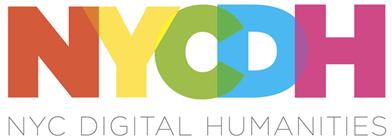Public
| Name | Emily L. Spratt |
| Affiliation | |
| Title | Ph.D. Candidate in the Dept. of Art and Archaeology, Princeton University (Byzantine and Renaissance-Baroque Art Historian, Cultural Heritage Industry Professional, Specialist in Machine Learning in the Arts, and Strategic Advisor) |
| Bio | Emily L. Spratt is a Byzantine and Renaissance–Baroque art historian and professional in the cultural heritage industry. Her areas of research include: Venice and the Mediterranean, 1400–1600; the Hellenic world from antiquity to the Greek independence movement, with expertise on the Byzantine and Ottoman periods; the history of the museum; and aesthetic theory. She is also a specialist on machine learning in the arts and human-computer interaction. Having completed an M.A. in Renaissance art history at Princeton and another in Byzantine art history at UCLA, and holding a B.A. in religious studies and the history of art at Cornell University, she is able to combine the perspectives gained in the Renaissance and Byzantine fields of study in her project on the nachleben of the Byzantine Empire. At Princeton, her dissertation, “Byzantium Not Forgotten: Constructing the Artistic and Cultural Legacy of an Empire between East and West in the Early Modern Period,” is a tripartite study of the response of religious art and architecture to different modes of rulership in the Venetian, Ottoman, and Slavic domains after the fall of the Byzantine Empire. Icons, wall paintings, and the role of prints and engravings in the dissemination of Western imagery in the East are key aspects of Emily’s project, as are notions of community identity through Orthodoxy. With experience at the Byzantine and Christian Museum of Athens, the Benaki Museum, and the former Hellenic Ministry of Culture, Emily has been a collaborator on a number of projects and international exhibitions. Currently she is involved with a major research project at the Frick Collection relating to vision technology, where she is a research fellow. Emily also curated the recent exhibition “Unhuman: Art in the Age of AI,” on the art of the AICAN algorithm. |
| Email Address | |
| Website |
